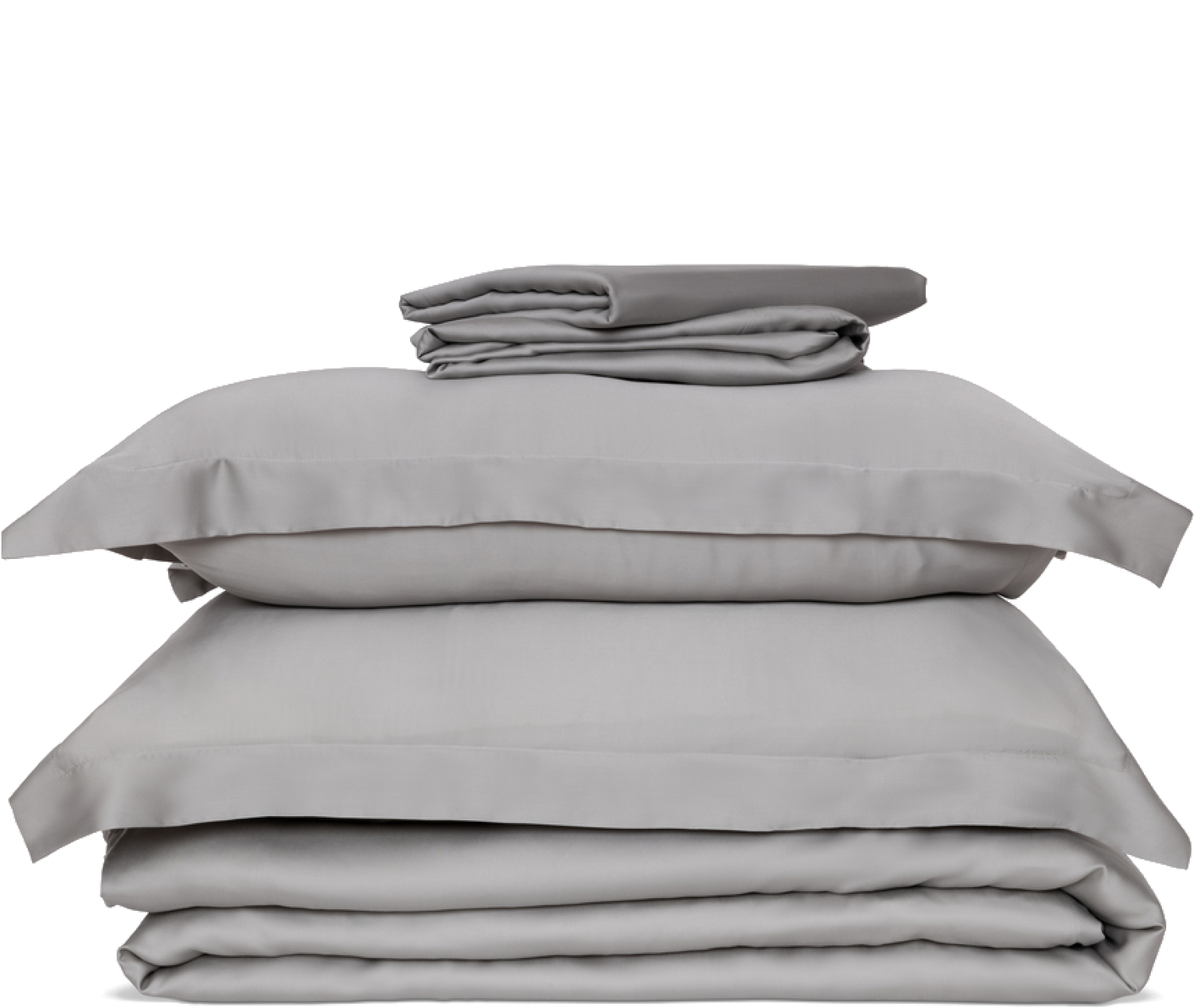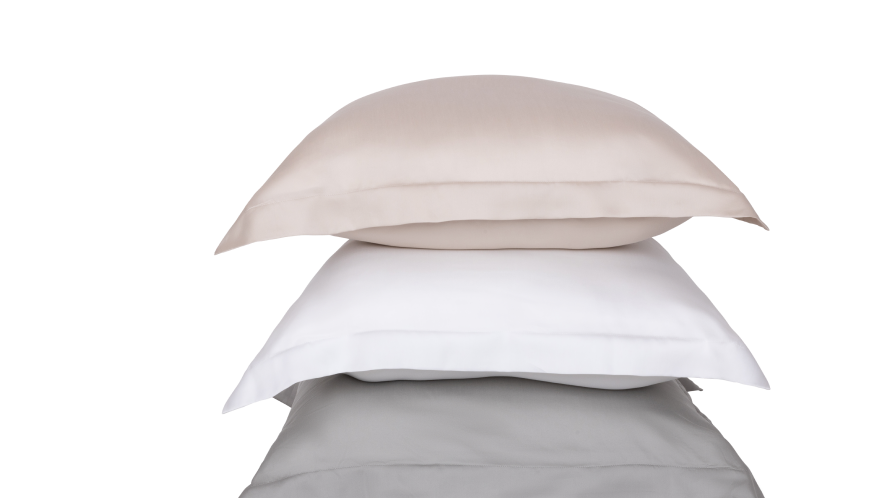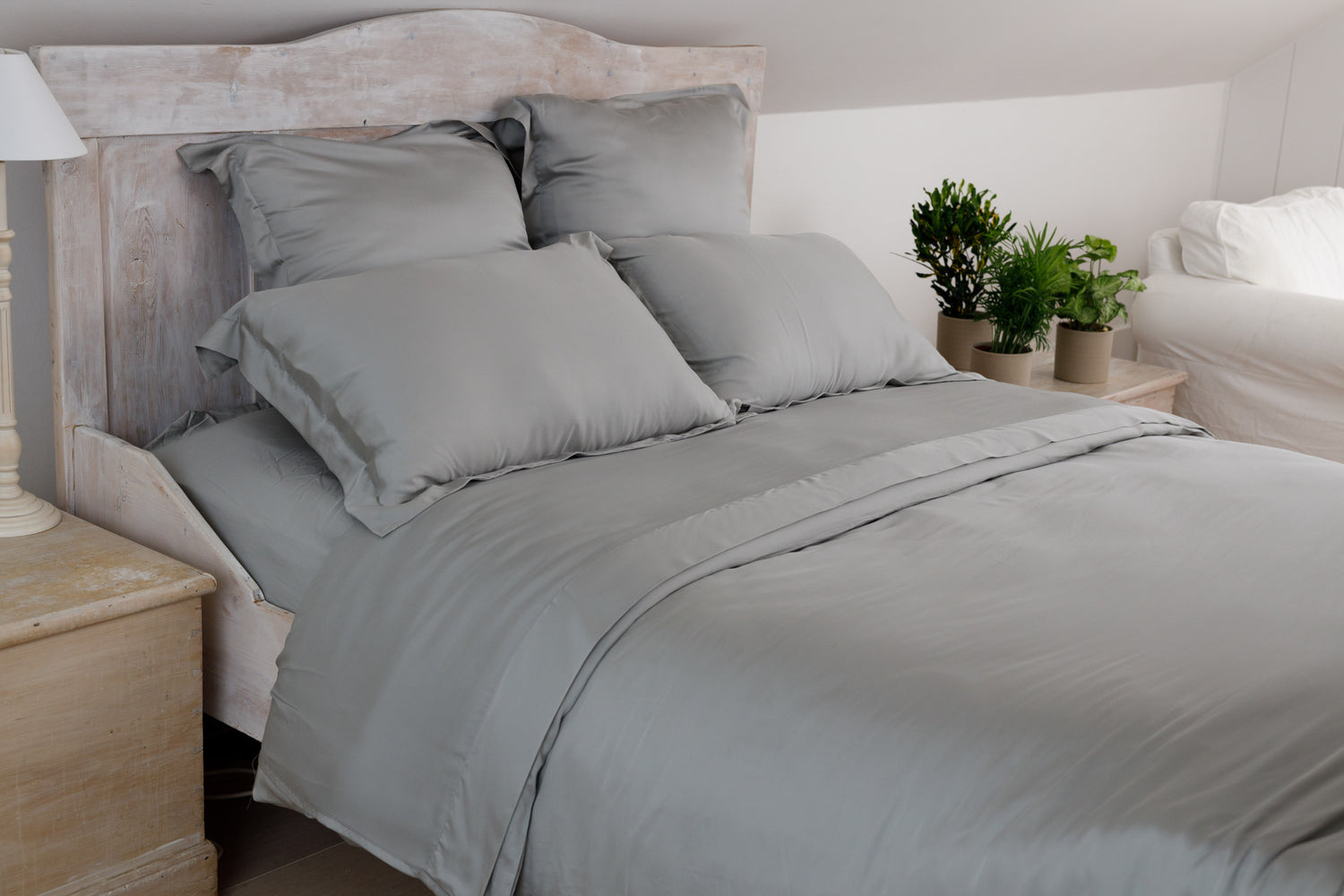Menopause is something that almost all women will experience at some point in their lives, but you might not be aware of the ways you can alleviate pain and discomfort throughout the transitional period. Fortunately, our experts are on hand!
In this article, we’ve explored the most common menopause symptoms and how they can affect the quality of your sleep and rest, and discussed the best bedding to invest in for comfort and temperature regulation.
Understanding menopause and sleep disruptions
Before we delve into its impact on sleep and rest, it’s important to have a strong understanding of what menopause actually is – as well as how to identify it and when you might need to upgrade your bedding.
Typically occurring in women in their late 40s/50s, menopause is a natural hormonal process that marks the end of a menstrual cycle (i.e. your monthly periods). If you fall into the appropriate age bracket and it’s been a series of months since experiencing a period, you might be going through menopause – though, its officially diagnosed after 12 months without a menstrual period.

Shop Our Bedding Best Sellers For All Seasons
Common symptoms affecting sleep
When it comes to menopausal symptoms, you likely first think of hot flashes and mood swings, but they’re not the only things to look out for.
In fact, menopause is also known to significantly affect the quality of sleep and can even contribute to night sweats and chills. Night sweats can cause particular discomfort and broken sleep, with hot flashes and high temperatures sometimes making it extremely difficult to find a comfortable resting position.
With this in mind, it’s useful to have a handle on the situation and take every effort to combat the side-effects. Simple steps include reducing stress, alcohol intake, and caffeine, but what you might not have considered is choosing new bedding that not only reduces feelings of discomfort, but actively works against menopausal symptoms to regulate temperature and alleviate aches, cramps, and pain.
So, without further ado, let’s delve a little deeper into why you might need new bedding, and how to identify the best sheets for menopause.
The problem with cotton bedding
There’s no denying that cotton bedding is a comfortable option, especially if you choose high-quality sheets like Egyptian long-staple cotton.
However, if you’re experiencing menopausal symptoms, it might not be the most equipped to combat hot flashes and night sweating, both of which can leave you waking up drenched. Not only can this cause further discomfort – because who wants to lay in a pool of sweat – but you’ll also need to wash your bedding more regularly, which takes effort and adds to your monthly energy bill.
Rather than cotton bedding, which absorbs and holds moisture, you should consider moisture-wicking, breathable, and temperature regulating alternatives instead, such as eucalyptus silk, bamboo, or Tencel.
If you’re interested in learning more about the features and benefits of each compared to cotton, explore our guides to cotton vs Tencel sheets and bamboo vs Egyptian cotton bedding.
Characteristics of ideal menopause sheets
When buying new bedding for menopause, there are a few key criteria to consider, including breathability, softness, and hypoallergenic properties.
-
Breathability and comfort
When going through menopause, you’re likely going to experience a series of common symptoms (up to three quarters of women experience the same thing), so it’s important to combat those within your control to alleviate overall discomfort.
With this in mind, breathability and temperature regulation are some of the most important factors to consider when investing in menopause-friendly bedding.
Among the best bedding for night sweats, we have eucalyptus silk - an ethical alternative to traditional silk – which boasts all the benefits of silk without the questionable manufacturing process.
2. Thread count
Thread count is something you’re likely aware of, or have at least seen when browsing bedding options, but what does it actually mean – and what is its significance for menopausal women?
Essentially, thread count refers to the number of horizontal and vertical threads within a square inch of woven fabric: the higher the thread count, the more threads, which typically means softer bedding.
There is, however, a point in which a higher thread count doesn’t yield a significantly-more luxurious fabric, and bedding with a thread count of at least 300 is usually considered to be of extreme quality.
One thing to be aware of, however, is bedding that’s labelled as luxuriously, but the ‘ply’ figure is 2+. Two-ply yarns consist of two single strands twisted together to make one single thread – so, while bedding might be labelled as 600 thread count, in reality it’s actually only 300.
For more information, explore our complete guide to bedding thread counts.
3. Natural and organic
When investing in new bedding, it’s often useful to consider fibres that are both naturally occurring and manufactured organically. This is for a number of reasons, but the most important are its non-toxicity.
While organic bedding, such as Egyptian cotton, eucalyptus, bamboo, and linen, is sometimes a little pricier than non-organic alternatives, it’s often a worthwhile investment in the long run, and you’ll quickly start to see its value.
4. Hypoallergenic materials
The final major thing to consider when buying new bedding is its hypoallergenic properties, and how equipped it is to fight off dust, mites, and mould – among other allergens.
After all, the last thing you need when experiencing hot flashes and night sweats is spluttering, sneezing, and itching.
The best hypoallergenic sheets will not only reduce the impact of common allergens, but actively keep them away, which is especially useful if you suffer from skin or respiratory conditions such as eczema or asthma. Examples of bedding fabrics that are naturally hypoallergenic include silk (and its eucalyptus equivalent) and bamboo.
Which type of bed sheet is best for menopause?
Throughout this article, we’ve looked at and considered some of the best sheets for menopause, and the reasons why you might choose to invest in better sheets; but to simplify your decision and help you settle on a new favourite, we’ve compared the pros and cons of some of the most common and popular fabrics:
|
Material |
Benefits |
Drawbacks |
|
Cotton |
|
|
|
Bamboo |
|
|
|
Linen |
|
|
|
Eucalyptus silk |
|
|
|
Polyester |
|
|
Our testing process for bed sheets
Finally, you might be wondering how and why we’re so qualified to talk about and offer advice to the best bedding for menopause! Well, it’s quite simple really – we’re passionate about all things bedding and strive to bring the best night’s sleep no matter your circumstances, whether you’re going through menopause, pregnancy, or simply suffering from poor quality sheets.
In fact, we’ve found the perfect combination of luxury and comfort – while remaining affordable – to offer the ultimate bedding. If you’re feeling inspired, explore our range of eucalyptus silk and bamboo bestselling bedding, or discover more help and advice from our sleep experts over on the Ethical Bedding blog.









